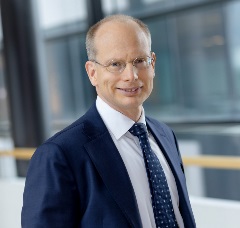

Germany is right to phase out coal, but flexible gas must bridge the gap
As the new coalition Government sets out plans to accelerate the coal phase-out, Germany finds itself on the precipice of a generational shift towards renewable energy.
However, the future of green energy is not black and white. To secure a cleaner future, we must find the right tools to transition huge national power systems smoothly.
Part of the challenge for any energy minister is finding the right balance to meet short-term demand to keep the lights on, while striving towards the decarbonisation targets set out in the Paris Agreement and Glasgow Pact. For Robert Habeck, the new German minister for economy, energy and climate, this question must be at the top of the agenda.
To bridge the gap to low carbon power, the most important step is obvious: add more renewable capacity. More difficult is how to manage the inherent intermittency of renewable generation.
Coal is not the solution to this challenge. Wärtsilä’s power system modelling demonstrates that the new German Government is right to phase out coal and do so even faster than planned. A coal phase out by 2030 and net zero system by 2040 will save emissions and costs.
Our PLEXOS modelling presents a clear alternative to coal: a gas bridge. This route provides the most effective way of supporting the transition to renewable energy. While gas must not be used as baseload power, its ability to ramp up quickly to meet demand makes it best suited to balancing the intermittency of renewables.
Crucially, we cannot remove one type of fossil fuel by embedding another. The next step of Germany’s path to net zero must be setting a gas phase-out deadline. As our recent whitepaper shows, there are significant benefits to doing so by 2040, rather than 2045, including a -34% reduction in the levelised cost of electricity.
In order to phase out the final 20% of emissions, existing engines must be converted to run on sustainable fuels like hydrogen. Our modelling shows us that the transition from gas to hydrogen must begin by 2030.
Technology companies such as Wärtsilä are already testing existing gas engines to convert them to run on sustainable fuels, enabling hydrogen to be used to balance the gird sooner, and helping to bring forward Germany’s net zero date.
The path towards an affordable, sustainable energy sector is clear. It is now up to the German Government to activate it.
Author

Håkan Agnevall
President and CEO, Wärtsilä